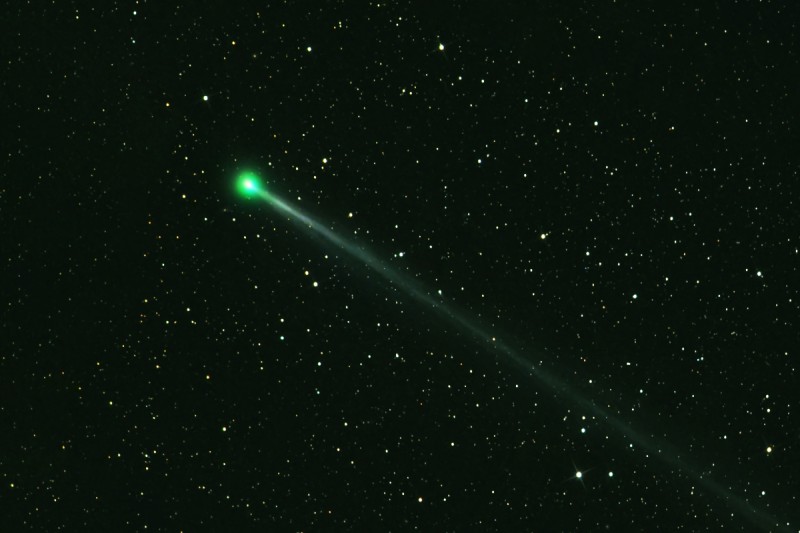
Later this month, a rare green comet that was just spotted in August might be seen in the Australian sky. The comet, officially known as C/2023 P1, will pass directly over Earth for the first time in 437 years. It is about a kilometer wide, and according to specialists, you may witness it for yourself in a few days.
According to NASA, the comet was discovered on August 12 by Japanese space photographer Hideo Nishimura using a standard digital camera. Nishimura gave the comet its name after this discovery. Its brightness has since grown, and its path through the inner Solar System has been identified. Comets are called “dirty snowballs” because they are composed of ice, rock, and soil. The high gas concentration in Nishimura is what gives it its green color, though.
Since comets are unexpected, Nishimura may be killed by the Sun’s strong heat because it is traveling closer to the Sun than Mercury. However, there is a potential that Nishimura will survive and unexpectedly brighten, becoming apparent to the naked eye. The last time it passed close to the Sun (and possibly came closer to Earth) was around the year 1590, before the invention of the telescope, according to Dr. Paul Chodas, director of NASA’s Center for Near Earth Object Studies. This celestial event only occurs once every 430 to 440 years. As a result, it won’t be apparent until at least 2458.
The optimum window for viewing the comet in Australia will be from September 20 to 27, when its head will set around an hour after the sun. On September 23, it will be the farthest from the Sun.
Since this may be our only opportunity to see the comet, experts have provided some helpful advice to ensure your greatest chance of catching a look.
You’ll need to get up before sunrise if you want to see it before it disappears. In the hours before dawn, locate the Leo constellation on the eastern horizon. Binoculars or a small telescope will be necessary for the best view. If you’re looking for some additional resources to help you find the comet, have a look at this list of astronomy apps by Space.
May is Small Business Month, a time to honor and recognize the achievements of the… Read More
Swiss International University (SIU) is on track to be one of the world's most respected… Read More
In a session that left students buzzing with fresh ideas and practical insights, Invertis University… Read More
At the 21st Shanghai International Automobile Industry Exhibition, which is surging with the wave of… Read More
Liverpool, UK—House of Spells and Comic Con Liverpool are once again collaborating to bring the… Read More
Introduction In India's booming EdTech space, there's one name that's making waves among Telugu students… Read More